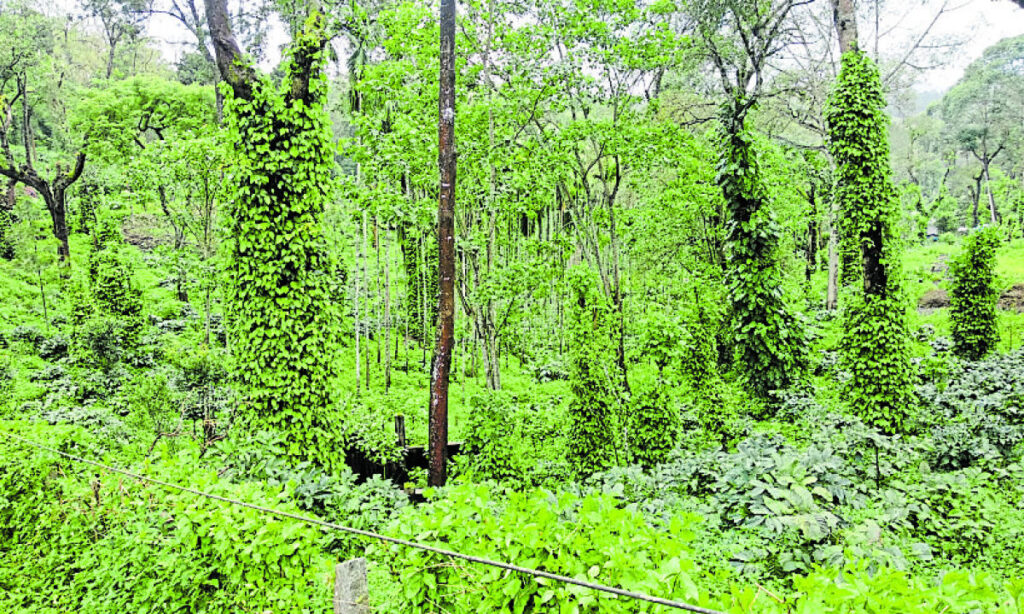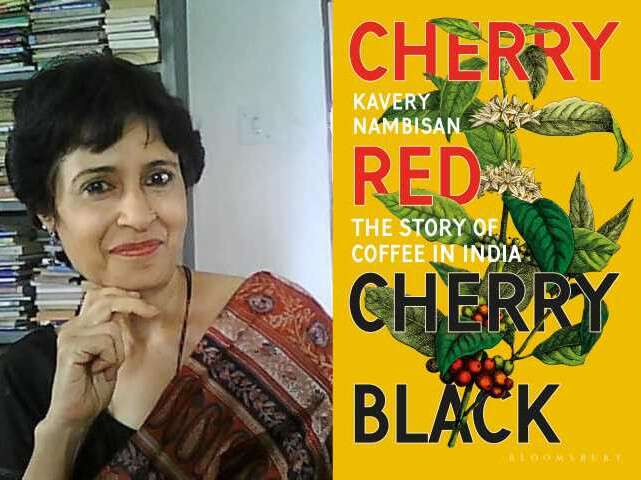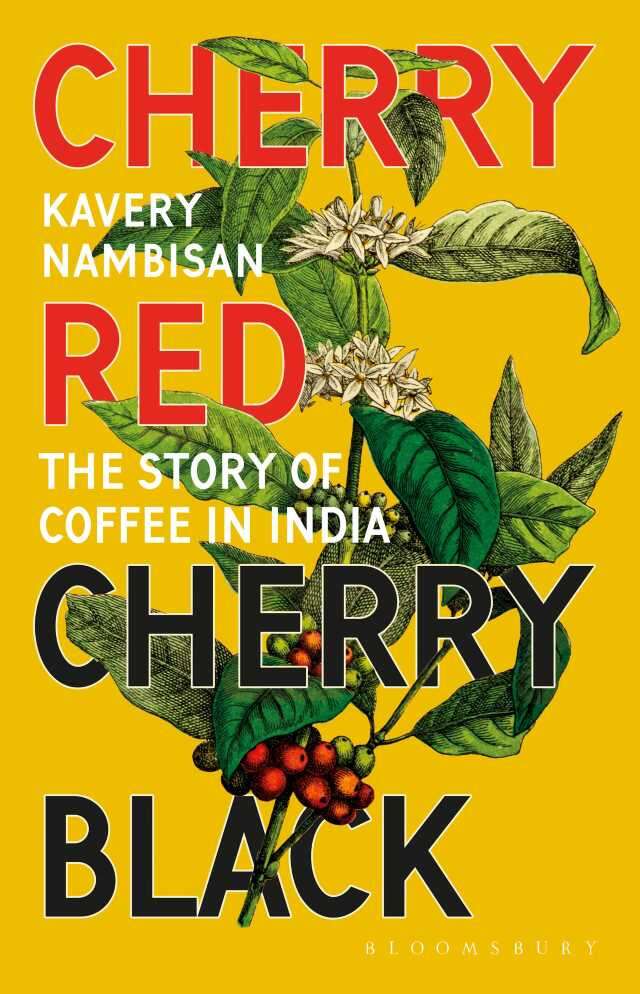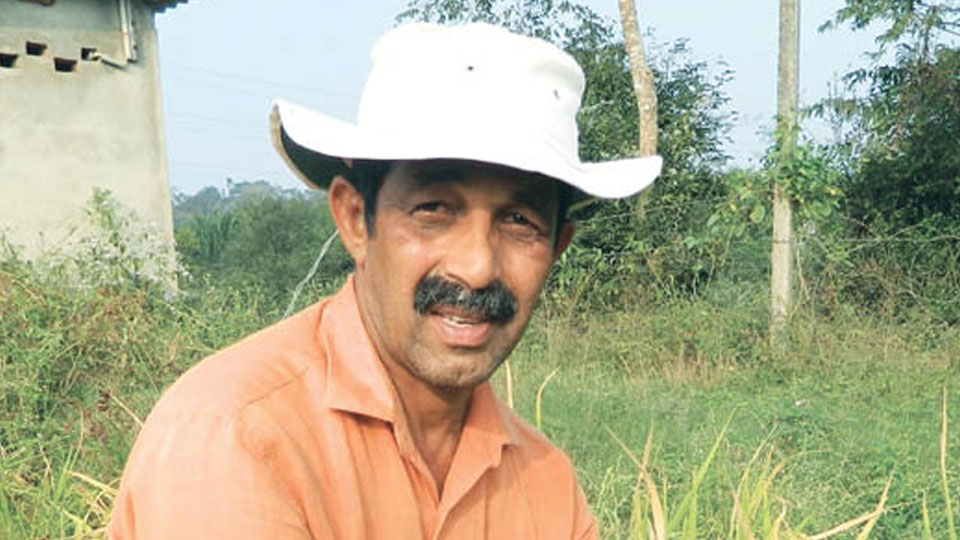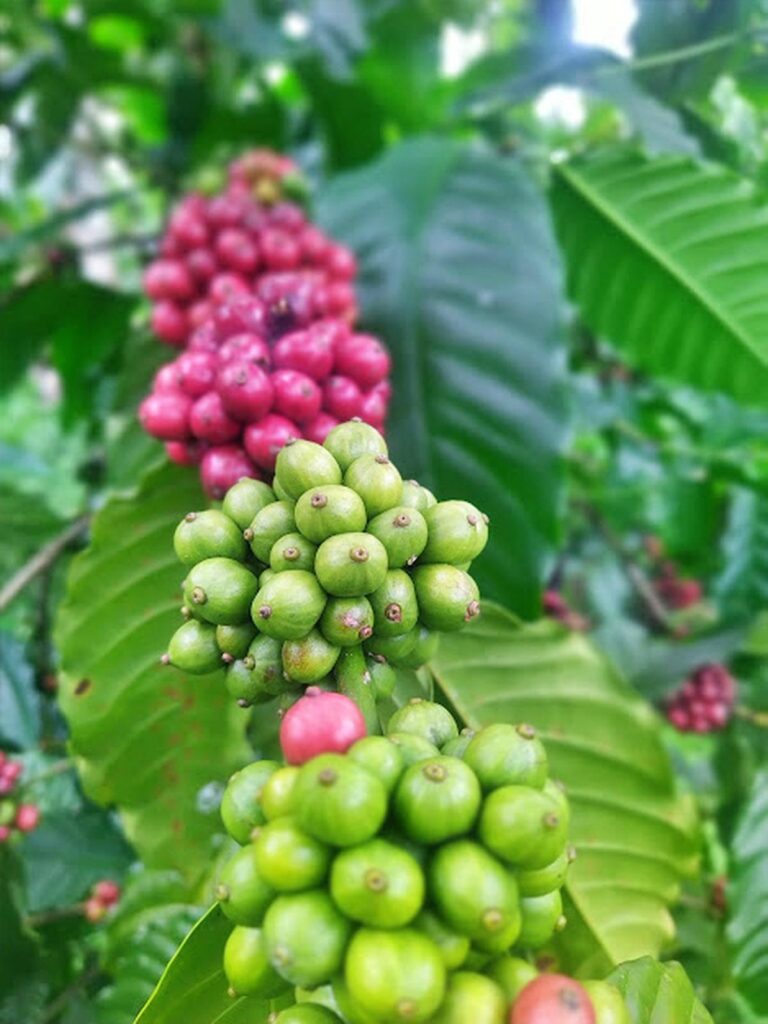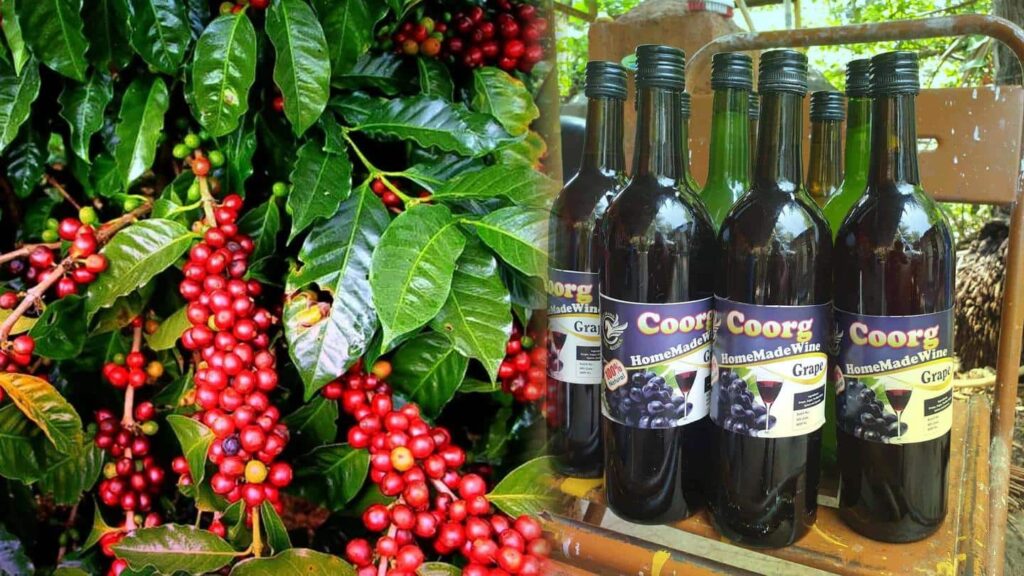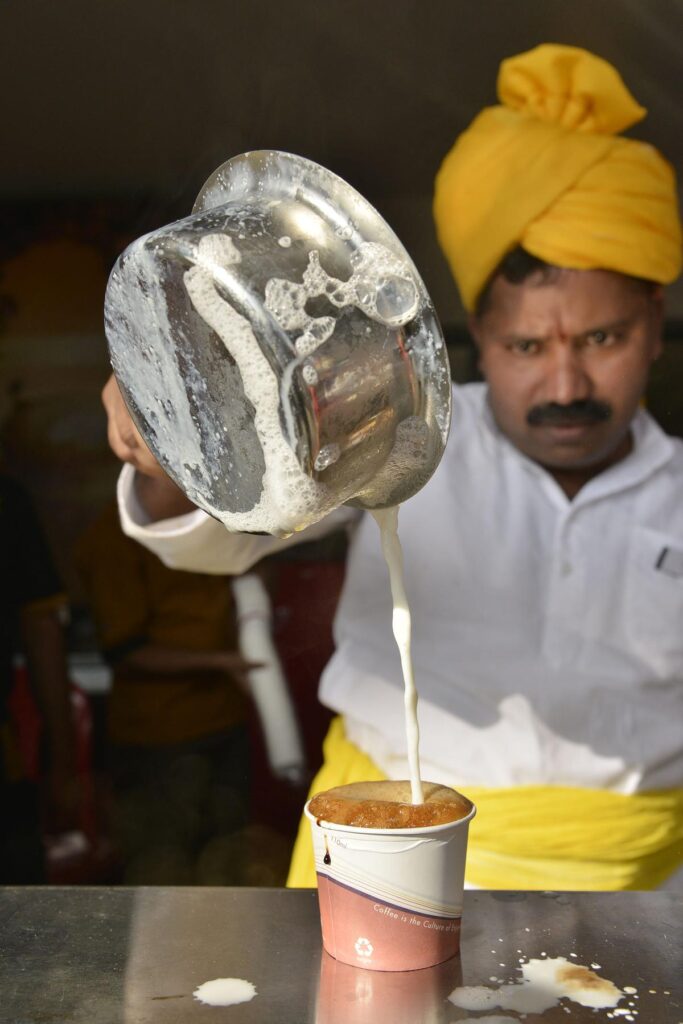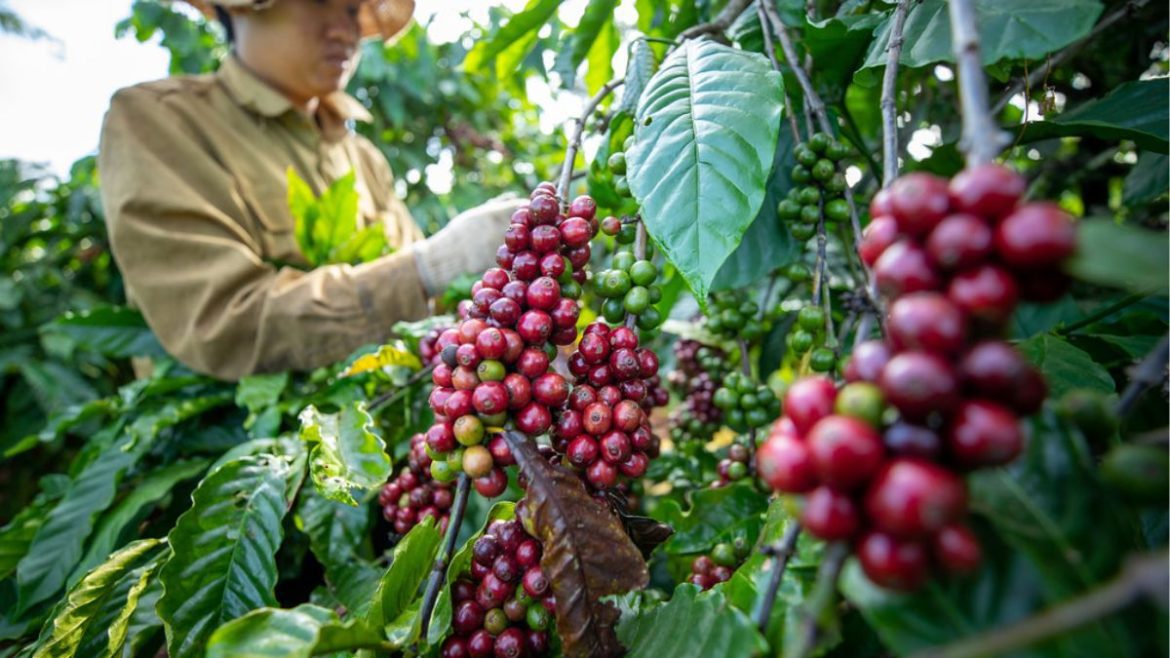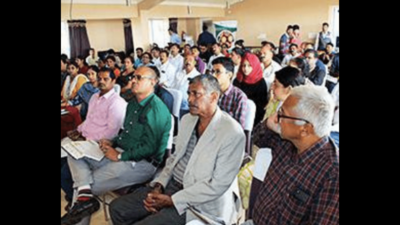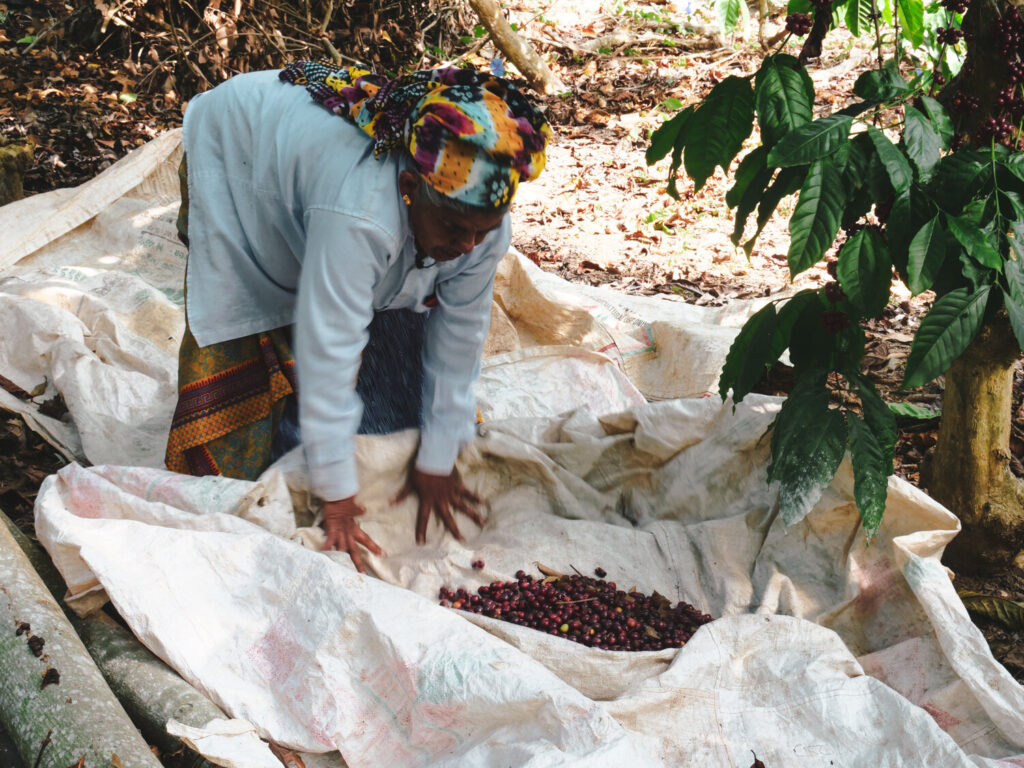
We walked through meandering coffee plantations and around precarious corners that led up steep cliffs. “Most of these coffee farms belong to local families trying to make a living. They do most of the work themselves. It is difficult labor,” Aarush, the enthusiastic tourism manager at Mojo Plantation, explained. Eventually the forest ascended into open valleys overlooking thick, emerald rainforest below. “You see the mountainside there? There were huge landslides last year.”
Each year during the rainy season, torrential rains cause mudslides that destroy homes, villages, and farmland. Nonetheless, Coorg’s exceptional beauty alongside the promise of fertile land and the increasing boom of the coffee industry have made this slice of southern India an attractive destination to build a livelihood for centuries.
History of Coffee in India
India is a nation typically renowned for its tea. Chai wallahsare found on corners across India selling small cups of tea from roadside stands and carts. Grand tea estates and blossoming tea plantations cover hill stations across both northern and southern India. However, India also has a little-known coffee history that has blossomed into a flourishing industry in recent years.
History tells it that in 1670, a Muslim pilgrim named Baba Budan snuck seven coffee beans in his beard aboard a ship to India. Upon arrival, he planted these beans in the Chikmagalur region near Coorg in Karnataka. At this time, it was illegal to transport green coffee beans outside of Yemen, and the ports were strictly monitored in an effort to maintain a monopoly on local coffee production and trade.
Baba Budan was not only successful at sneaking them out of Yemen but also successfully planted them in Chandragiri Hills. Legend has it that the Baba had his friends carry the beans with them and plant them wherever they went, mostly in gardens and backyards. Coffee production prospered in Chandragiri Hills over the next century. However, the bean didn’t spread throughout other parts of India until the 19th century, when coffee started being exported for trade. Coffee now flourishes in Karnataka, where the slopes of the Western Ghats are brought to life with the fresh aromas of arabica and robusta plants.
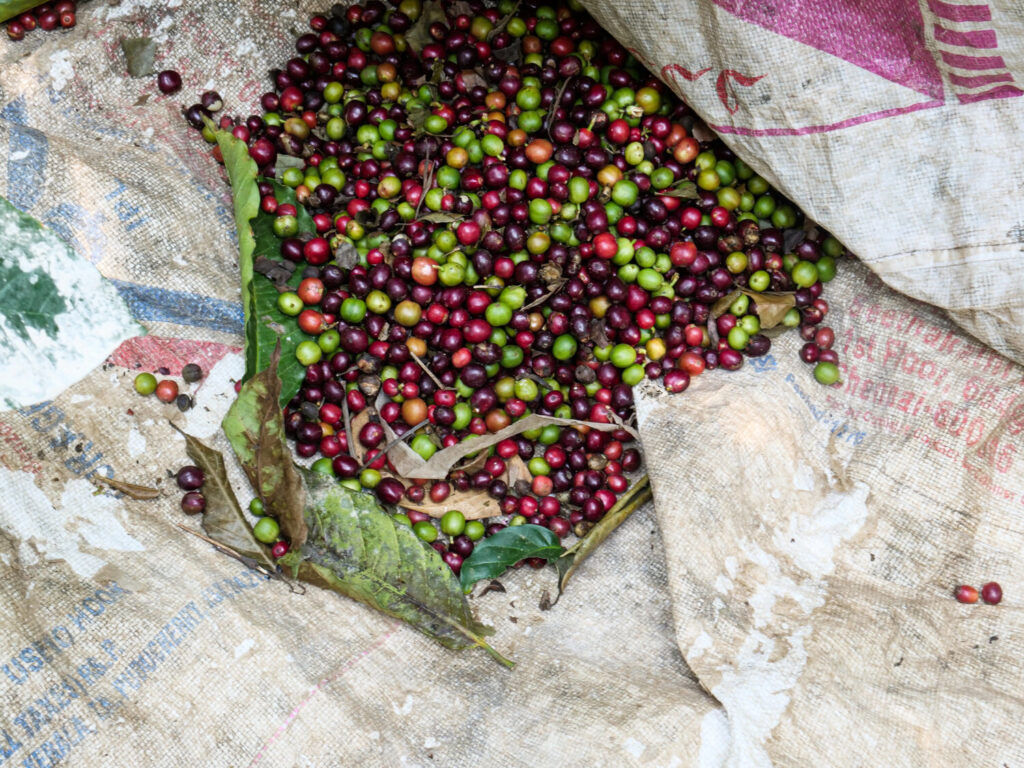
Welcome to Coorg
Also known as Kodagu in the local Kodava language, Coorg is a district and hill station in southern Karnataka, a state on India’s southwestern coast. Coorg is rich with colorful folklore and a dynamic history.
“You know there are sacred forests in Coorg? People worship the forests and the species living in them,” Aarush mused. The original Kodava inhabitants were agriculturalists, still evident today in the protection of forests and the emphasis on agriculture in the region.
The undeniable natural beauty and abundance in Coorg—from rainfall and rice fields to fertile soil and diverse water sources—made the region a highly sought-after location to outsiders throughout history. Nonetheless, the Haleri dynasty, which ruled from 1600, withstood countless attempted invasions of Coorg for centuries, reigning strong and quelling outside attacks.
The last king, Chikka Veerarajendra, however, lost the support of his people and eventually the warriors who once propped up the Haleri dynasty also brought it to an end. Shortly thereafter, in 1834, a Coorg general named Apparanda Bopanna invited the British forces into the kingdom. Despite previous resistance to British influence, the partnership with the British beckoned in a period of peace and prosperity. The British introduced coffee cultivation on a mass scale, capitalizing on the coffee beans that were brought over some centuries earlier.
The first coffee estate was established in Coorg in 1854 by an Englishman named John Fowler. Soon, almost every family in Coorg began to grow the infamous bean that energizes people across the globe. This tradition has been carried through generations to present day, perhaps contributing to the nickname Coorg has acquired of being “the coffee cup of India.”
Contemporary Sustainable Farming
Coffee in south India is a competitive commodity to the infamous tea that dominates India’s northern states. Estates are plentiful in the southern Indian states of Karnataka, Kerala and Tamil Nadu. The plants grow beneath thick, natural shade in ecologically diverse and sensitive regions of the Western and Eastern Ghats. Coffee plantations simultaneously contribute to the biodiversity of the local ecosystem and to the socioeconomic development of these hilly, rural regions.
Coorg grows 40 percent of India’s coffee, and the local economy relies heavily on it. The majority of the uninhabited land is cultivated coffee farms, many of them still owned by families as they were when coffee estates first emerged in the mid-19th century.
Today, Karnataka yields 140,000 tons of coffee a year and is the largest producer of coffee in the country. As a whole, India produces 299,300 tons of coffee annually, according to a 2019-2020 census by THE COFFEE BOARD OF INDIA. India is the third-largest producer and exporter of coffee in Asia and the sixth-largest producer and fifth-largest exporter of coffee in the world. It accounts for 3.14 percent of the global coffee production. Seventy percent of India’s coffee is exported, and thirty percent is distributed and consumed domestically.
Spice Farms
Even though Coorg might be known as the coffee cup of India, the region has been renowned for its spices for centuries, long predating the introduction of coffee. Coorg pepper is particularly famous. Since ancient times, traders arrived at the Malabar Coast in bordering Kerala to purchase the treasured black spice grown in the emerald hills of Coorg. Cardamom, cloves and kokum, among other spices, grow abundant in Coorg and supplied the Malabar spice coast trade. Coffee hasn’t replaced the spice trade in Coorg, but rather complemented it. Today, on many estates, coffee and spices grow side by side and benefit from the diversification of the local eco-system.
Sustainable Tourism and Agriculture
“Can you smell the flowers? Doesn’t it smell like jasmine?” Sunal, my guide at Evolve Back asks me. He is right. I notice a discernible scent of jasmine permeating the air as we walk through rows of blossoming coffee trees. “When the coffee trees are ripe, they have small, white flowers that smell like jasmine.” The rows of arabica and robusta trees hang heavy with burgundy-colored fruit and delicate white flowers. Interspersed among the blossoming coffee trees are ladders of pepper vines climbing into the sky.
There are two different climates in Coorg—rainforest and dry, temperate forests—both of which are friendly for coffee growing conditions. A region relatively far off the typical tourism track, the increasing focus on sustainable, organic farming alongside experiential travel has been monumental in encouraging intentional and experiential travel in Coorg. A handful of initiatives have developed sustainable, organic coffee growing, which is leading to a regionwide awareness around responsible agritourism.
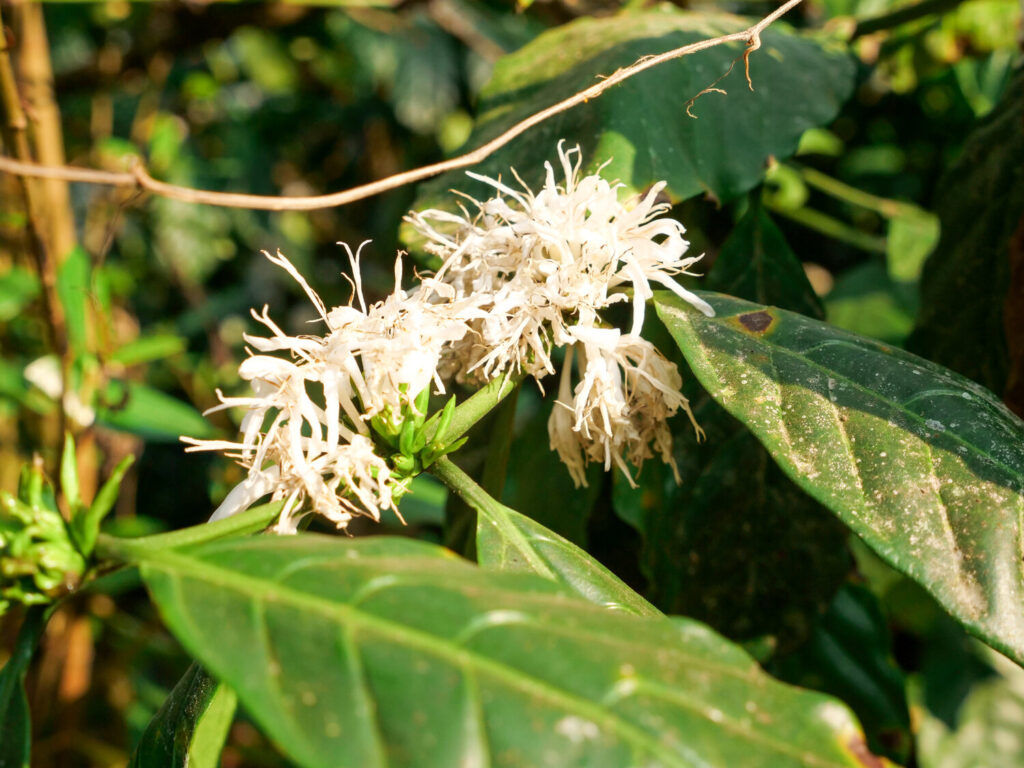
I started my time at RAINFOREST RETREAT, which is situated outside of Coorg’s main town, Madikeri, and offers an educational and immersive coffee-based tourism experience. This organic farm and guesthouse feeds into the concept of organic, sustainable agriculture. Set amid tropical rainforest, Rainforest Retreat and the adjoined Mojo Plantation are a deeply researched experiment in ecological farming. Understanding and playing to the strengths of the eco-system, the plantation focuses on “agro-ecology.” They encourage all forms of organic farming, including biodynamic farming, permaculture and traditional practices such as panchkavyaandjeevamruth, which all help to sustain healthy, living soils.
On Mojo Plantation, the coffee and spices flourish side by side amid the riches of the rainforest. During my stay, I spent hours each day meandering through thick growth of native trees, vanilla, turmeric, cinnamon, ginger, and black pepper crops; and coffee trees heavy with ripened arabica and robusta beans. The growth of the rainforest canopy is left natural, allowing for the fungi, spiders and insects native to the ecosystem to their important role in the ecological coffee and spice farming in this region. Mojo Plantation also produces the delicacy luwak coffee. The civet cat ingests coffee beans and the excrements are collected and processed into some of the most expensive coffee available on the market.
Mojo Plantation also runs an NGO, which offers workshops and trainings for farmers and agricultural businesses about organic, chemical-free practices, to encourage a continued shift and commitment to ecological farming as a method to grow organic coffee and spices.
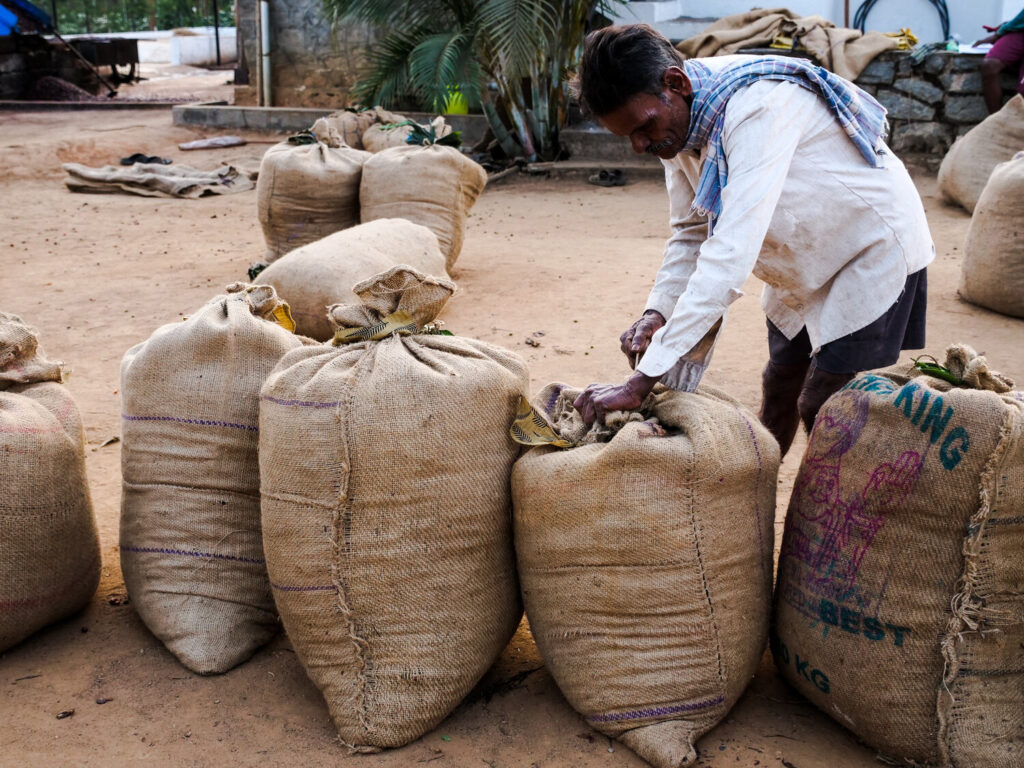
From Rainforest Retreat, I traveled to EVOLVE BACK, which sits on the opposite side of Coorg in a more temperate climate. This family-run plantation and guesthouse dating back over a century stands as an example of the entwinement of mostly domestic tourism and the coffee industry in Coorg. Inviting guests to stay amid an organic coffee and spice plantation, Evolve Back offers a complete immersion into the ebbs and flows of work on a coffee plantation.
Each day a new experience that was immersive, sustainable and educational. I walked through the expansive breadth of the plantation, abundant in plant and spice varietals. I learned about and visited each step of coffee cultivation, from the fields, to sun-drying the beans, to processing the beans in the factory. I tasted surprisingly smooth coffee wine, a fermented drink made from remaining coffee juice after the beans were separated from their skins. I cycled through villages along the river Cauvary. On my final day, I joined farmers in the field to pick ripe coffee beans. At the end of an afternoon in the fields, I sunk my teeth into delightfully pink rose apples as the truck pulled away, leaving me with the sight of coffee fields receding into the horizon.
Local Consumption
At some point during the 19th century, South Indians began to adopt coffee drinking, and adapted it with their own style. They brew their coffee with milk and sweeten it with jaggery. While coffee remains a beverage mostly consumed at home across India, the southern states of Karnataka and Tamil Nadu are plentiful with street-side coffee stands, much like the chai stands throughout northern India.
“We have saved the best for last: India’s infamous Kaapi coffee,” the barista at Evolve Back announced. Each afternoon Evolve Back hosts a coffee tasting for its guests to try different roasts and ways to brew coffee, from cappuccino to Vietnamese, and including India’s very own coffee, known as Kaapi. Amid the thick green coffee plantations and the stirrings of the surrounding jungle, the barista carefully pours steaming cups of Kaapi.
Also known as South India filter coffee, Kaapi is India’s most recognized coffee specialty. This brew requires boiling milk, to which coffee and sugar are added. The liquid is processed through a cylindrical filter. After the tedious filtration process, the frothy concoction is poured into a metal cup, known as a davara, which is served inside a stainless-steel tumbler.
After days of having to turn down coffee after coffee due to an inexplicable caffeine intolerance I have had for a decade, I couldn’t resist tasting the smooth, flavorful specialty. I savored the few sips I allowed myself to indulge in, drinking in the centuries-long history of coffee that its way into this unassuming forested region off the southwest coast of India.
**Note: Names have been changed for privacy purposes
source: http://www.whetstonemagazine.com / Whetstone / Home> Journal / by Alicia Erikson , Text and Photo www.journeywithalicia.com / September 14th
